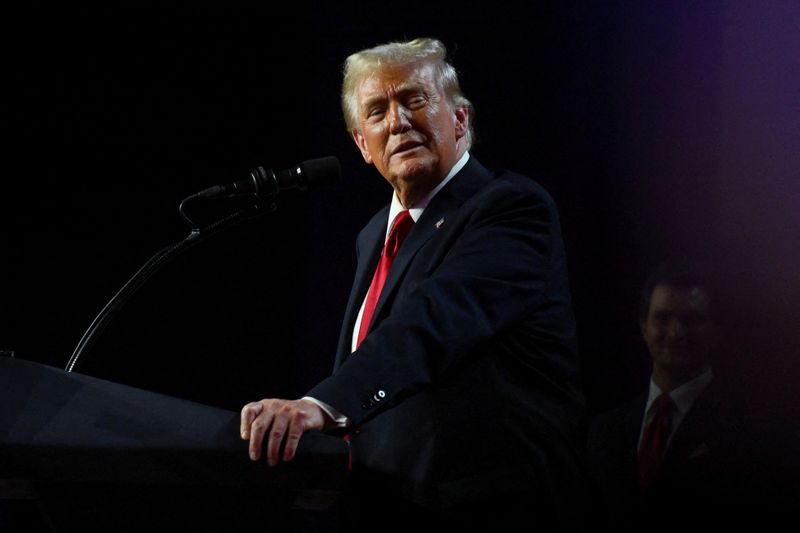Muslims who voted for Trump upset by his pro-Israel cabinet picks

By Andrea Shalal
WASHINGTON (Reuters) – U.S. Muslim leaders who supported Republican Donald Trump to protest against the Biden administration’s support for Israel’s war on Gaza and attacks on Lebanon have been deeply disappointed by his Cabinet picks, they tell Reuters.
“Trump won because of us and we’re not happy with his Secretary of State pick and others,” said Rabiul Chowdhury, a Philadelphia investor who chaired the Abandon Harris campaign in Pennsylvania and co-founded Muslims for Trump. Muslim support for Trump helped him win Michigan and may have factored into other swing state wins, strategists believe.
Trump picked Republican senator Marco Rubio, a staunch supporter of Israel for Secretary of State. Rubio said earlier this year he would not call for a ceasefire in Gaza, and that he believed Israel should destroy “every element” of Hamas. “These people are vicious animals,” he added.
Trump also nominated Mike Huckabee, a former Arkansas governor and staunch pro-Israel conservative who backs Israeli occupation of the West Bank and has called a two state solution in Palestine “unworkable”, as the next ambassador to Israel.
He has picked Republican Representative Elise Stefanik, who called the UN a “cesspool of antisemitism” for its condemnation of deaths in Gaza, to serve as U.S. ambassador to the United Nations.
Rexhinaldo Nazarko, executive director of the American Muslim Engagement and Empowerment Network (AMEEN), said Muslim voters had hoped Trump would choose Cabinet officials who work toward peace, and there was no sign of that.
“We are very disappointed,” he said. “It seems like this administration has been packed entirely with neoconservatives and extremely pro-Israel, pro-war people, which is a failure on the on the side of President Trump, to the pro-peace and anti-war movement.”
Nazarko said the community would continue pressing to make its voices heard after rallying votes to help Trump win. “At least we’re on the map.”
Hassan Abdel Salam, a former professor at the University of Minnesota, Twin Cities and co-founder of the Abandon Harris campaign, which endorsed Green Party candidate Jill Stein, said Trump’s staffing plans were not surprising, but had proven even more extreme that he had feared.
“It’s like he’s going on Zionist overdrive,” he said. “We were always extremely skeptical…Obviously we’re still waiting to see where the administration will go, but it does look like our community has been played.”
The Trump campaign did not immediately respond to an email seeking comment.
Several Muslim and Arab supporters of Trump said they hoped Richard Grenell, Trump’s former acting director of national intelligence, would play a key role after he led months of outreach to Muslim and Arab American communities, and was even introduced as a potential next secretary of state at events.
Another key Trump ally, Massad Boulos, the Lebanese father-in-law of Trump’s daughter Tiffany, met repeatedly with Arab American and Muslim leaders.
Both promised Arab American and Muslim voters that Trump was a candidate for peace who would act swiftly to end the wars in the Middle East and beyond. Neither was immediately reachable.
Trump made several visits to cities with large Arab American and Muslim populations, include a stop in Dearborn, a majority Arab city, where he said he loved Muslims, and Pittsburgh, where he called Muslims for Trump “a beautiful movement. They want peace. They want stability.”
Rola Makki, the Lebanese American, Muslim vice chair for outreach of the Michigan Republican Party, shrugged off the criticism.
“I don’t think everyone’s going to be happy with every appointment Trump makes, but the outcome is what matters,” she said. “I do know that Trump wants peace, and what people need to realize is that there’s 50,000 dead Palestinians and 3,000 dead Lebanese, and that’s happened during the current administration.”
(Reporting by Andrea Shalal; Editing by Heather Timmons and Peter Graff)